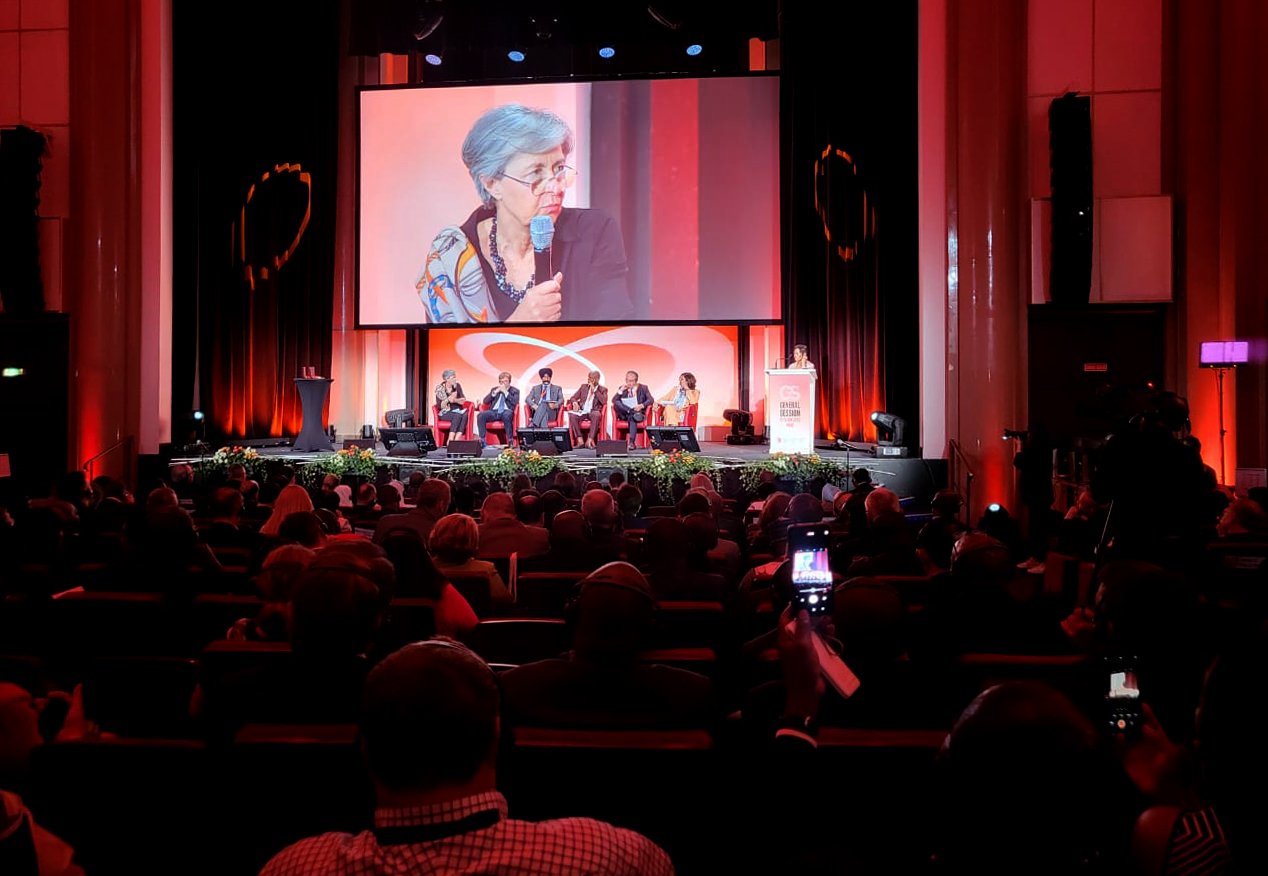 90th General Assembly of the World Organization for Animal Health (WOAH, former OIE), in Paris, between May 21st and 26th
90th General Assembly of the World Organization for Animal Health (WOAH, former OIE), in Paris, between May 21st and 26th
ABRA was in France to accompany the intense schedule of the Assembly, represented by the Executive President of the Association, Decio Coutinho, and the Technical Coordinator of ABRA and President of the World Renderers Organization (WRO), Lucas Cypriano.
In addition to participating in lectures and keeping abreast of new global regulatory proposals, ABRA also held bilateral meetings with target countries in the animal rendering sector. With the support of a robust team from the Ministry of Agriculture and Livestock (MAPA), which was also present, ABRA fulfilled fruitful agendas with Peru, Mexico, South Korea, Chile, Ecuador, Bolivia and Italy. The meetings were an opportunity to update demands for market opening, health status and to strengthen dialogue to expand the frontiers of the Brazilian rendering trade.
Check out the main highlights of the Assembly

- Official WRO meeting with WOAH
ABRA accompanied, through the WRO, an agenda with Francisco Dalessio and Yukitake Okamura, from WOAH. A very positive meeting, in which the OMSA requested that the WRO carry out a technical work presenting the standards with which the rendering sector works and its effectiveness in eliminating potential pathogens, eventually present in the raw material.
Once ready, the material has the potential to become a scientific basis to be adopted worldwide by WHOA. The theme will be deepened in the sphere of the WRO.
- Approval of the BSE Chapter
An important achievement obtained during the Assembly was the approval of the Bovine Spongiform Encephalopathy (BSE) Chapter. The publication of the text is the result of four long years of work carried out by the scientific committee of the WRO.
The position of the WRO, corroborated by ABRA, pointed out that the versions that had been dealt with by the WOAH, until last year, would be a complete disaster for the world trade of meat and bone meal containing ruminants, which would be impeded. At this year’s Assembly, the WOAH understood and accepted that the current classification, in which atypical BSE is not a risky pathogen, could be maintained and that additional control measures could not be removed, as they are part of a robust and necessary epidemiological program.
Therefore, although sterilization remains the norm, the possibility of adopting equivalent mitigation techniques was added to the chapter. This opens doors for countries with Negligible Risk such as Brazil, which remove the MER (Specific Risk Material), which has an extremely active health surveillance system, and which prevents suspicious animals from having their waste sent to the manufacture of meals are understood as mitigating, complementary and sufficient so that, in the future, sterilization is released.
A relevant achievement for worldwide rendering and for Brazilian industries!
- The Topic on Foot and Mouth Disease will be for next year
Text that has been discussed for five years, the Foot and Mouth Disease Chapter will return for voting in the 2024 Assembly, at the request of the European Union.
The revision postpones for another year the new classification of meals of animal origin as a safe commodity for international trade, regardless of the health status of the country – understanding already consolidated in the version that would go to the vote. As the reasons that led to the request for revision by Europe are not related to this section of the regulation, the sector’s expectation is that this position will be maintained in the next version.
The WRO remains attentive to the issue, reinforcing that goods from the animal rendering sector are safe regardless of the country’s degree of risk, as they do not transmit the disease.

Brazilian Renderers
Since 2012, ABRA and ApexBrasil have promoted the Brazilian Renderers project with the objective of promoting exports from the Animal Rendering sector – meal, fat, blood products and palatabiliy ehancers, and hydrolyzed protein of animal origin. Through participation in fairs, workshops and other special actions of commercial promotion, the projects value attributes of the animal rendering industry and its products – such as quality, health status and sustainability of production – and value the international brands of products, fostering new business for Brazilian exporters.
To learn more visit: brazilianrenderers.com
About ABRA
ABRA is an entity that represents the industries in the animal rendering sector that produce meal, fat, blood products and palatabiliy ehancers, and hydrolyzed protein of animal origin. It is a non-profit entity. It was founded in 2006 and works to promote its members, disseminate actions aimed at the segment, mediate the relationship with other entities and government agencies, in addition to fostering the generation of business in the national and international market.
For more information, visit: abra.ind.br
About ApexBrasil
The Brazilian Trade and Investment Promotion Agency (ApexBrasil) acts to promote Brazilian products and services abroad and attract foreign investments to strategic sectors of the Brazilian economy.
The Agency carries out diversified commercial promotion actions aimed at promoting exports and valuing Brazilian products and services abroad, such as prospective and commercial missions, business rounds, support for the participation of Brazilian companies in large international fairs, and visits by foreign buyers and opinion-makers to know the Brazilian productive structure, among other business platforms that also aim to strengthen the Brazil brand. ApexBrasil also acts in a coordinated manner with public and private actors to attract foreign direct investments (FDI) to Brazil, focusing on strategic sectors for the development of the competitiveness of Brazilian companies and the country.
To learn more, visit: https://apexbrasil.com.br/

